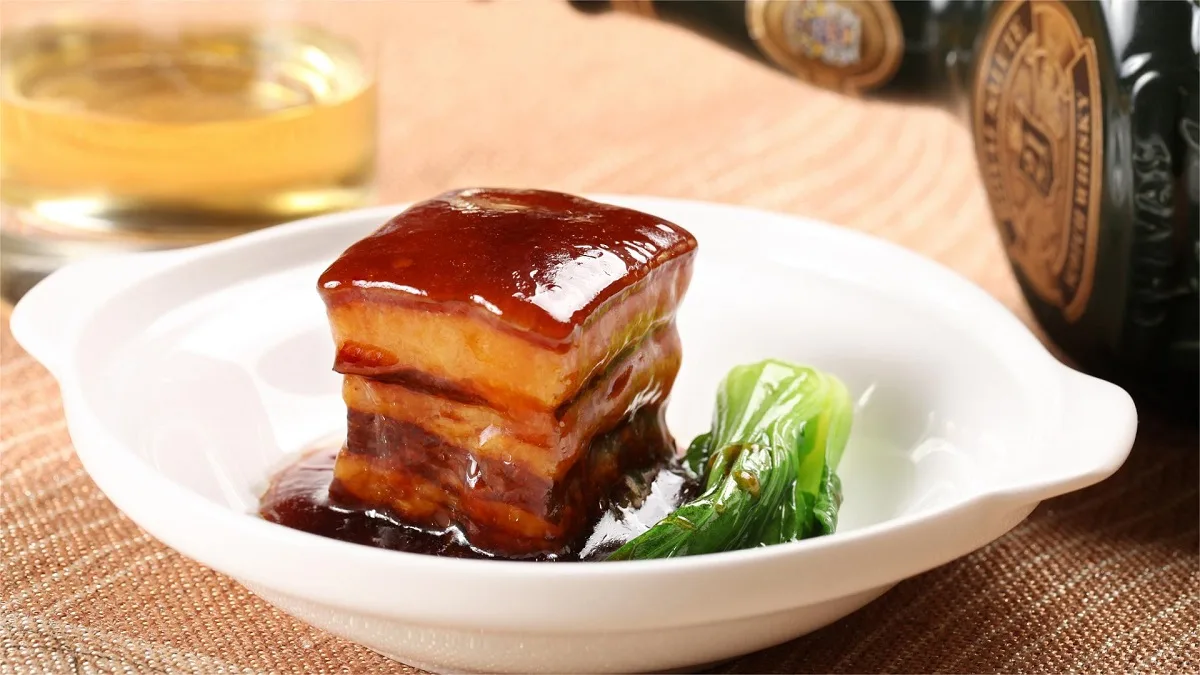Dongpo Pork (东坡肉), attributed to the Northern Song Dynasty’s famous literati Su Shi (also known as Su Dongpo), is a celebrated dish that combines historical significance and culinary excellence. Some legends suggest that Su Shi’s concubine, Wang Chaoyun, created the dish to improve their meals during Su Shi’s exile in Huangzhou. Su Shi’s love for this dish led him to name it “Dongpo Pork” as a tribute to its delectable taste. Originally from Meishan in Sichuan, the dish gained popularity and developed distinct variations in Zhejiang and other regions.
Characteristics and Flavor:
- Main Ingredients and Presentation:
Dongpo Pork uses half-fat, half-lean pork, typically choosing pork belly with skin. The meat is cut into neat, mahjong-sized squares, exhibiting a gem-like red color, tender and succulent yet not greasy. - Flavor Profile:
Known for its unique braised flavor, Dongpo Pork is tender, juicy, and richly flavored. Slow cooking allows the pork’s fat and muscle to meld perfectly, creating a melt-in-your-mouth experience. The rich, aromatic sauce complements the balanced layers of fat and lean meat, leaving a lasting impression.
Preparation Method:
- Ingredient Selection:
Choose fresh pork belly with skin, ensuring even layers of fat and lean meat. Prepare ginger, scallions, cooking wine, rock sugar, soy sauce, and other seasonings. - Cutting and Blanching:
Cut the pork belly into evenly sized squares and blanch them in boiling water to remove impurities and any unpleasant odors. - Coloring and Braising:
Coat the pork with caramelized sugar for a glossy red hue. Place the pork, ginger slices, scallion knots, cooking wine, soy sauce, and other seasonings in a clay pot, adding enough water (traditionally, Shaoxing wine replaces water for enhanced flavor). Simmer on low heat for several hours until the meat becomes tender and flavorful. Turn the pork cubes occasionally to ensure even absorption of the sauce.
Cultural Significance: Dongpo Pork is not merely a delicious dish but also a cultural emblem. It embodies the lifestyle and aesthetic pursuits of literati like Su Shi. In traditional culture, Dongpo Pork symbolizes taste and refinement, representing an elegant and exquisite way of life.


